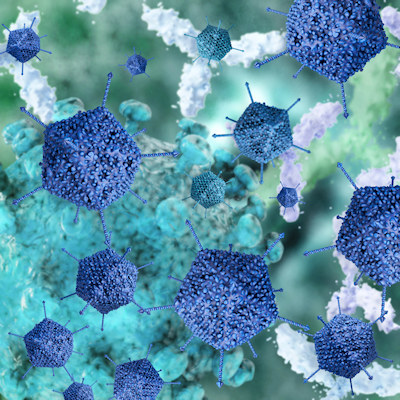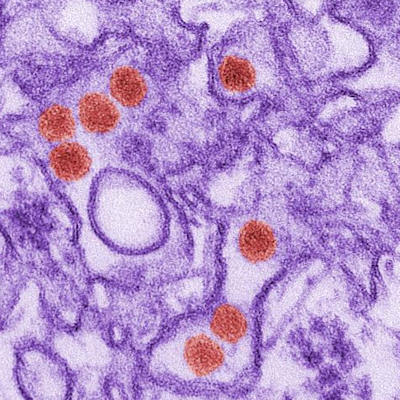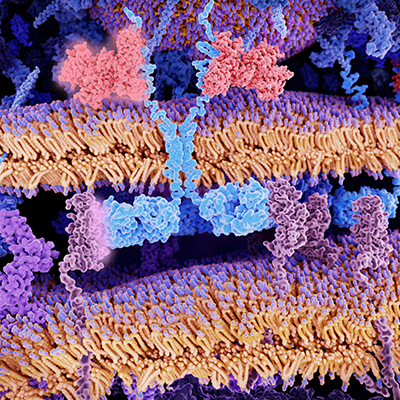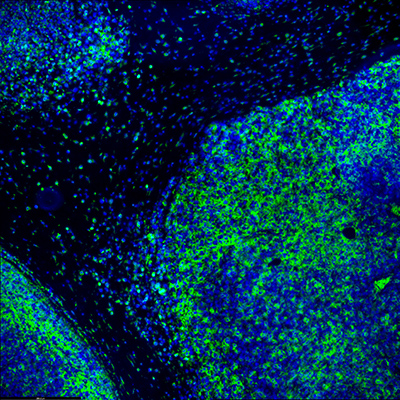 Boosting TERRA levels damages DNA of hard-to-kill cancer cells: study
Boosting TERRA levels damages DNA of hard-to-kill cancer cells: study
Increasing levels of telomeric repeat-containing RNA (TERRA) damages the DNA of cancers with a particular form of replicative immortality and leads to cell death, according to Portuguese researchers who show that “anti-aging clocks” can be used to kill cancer cells. Read More
 Researchers further understanding of how circadian clock helps brain recover after injury
Researchers further understanding of how circadian clock helps brain recover after injury
Children’s National Hospital researchers have found that a relatively newly discovered type of brain cell -- known as NG2-glia -- also follows a circadian rhythm, findings that potentially open new paths of investigation for the development of future traumatic brain injury therapies. Read More
 Demand for viral vectors seen outpacing capacity growth despite investment surge
Demand for viral vectors seen outpacing capacity growth despite investment surge
The growth in demand for viral vectors is outpacing a push to add capacity, leading to predictions that the current supply shortage will continue despite investment in the space. Read More
 Single-cell sequencing reveals spatial map of immune cells in early-stage lung cancer
Single-cell sequencing reveals spatial map of immune cells in early-stage lung cancer
Using single-cell sequencing, researchers at the University of Texas MD Anderson Cancer Center have revealed a spatial map of tumor-infiltrating B cells and plasma cells that are prevalent in early-stage lung cancers, providing a basis for finding new immunotherapy targets. Read More
 Genomics profiling reveals how Zika infects immune cells, suggests antiviral target
Genomics profiling reveals how Zika infects immune cells, suggests antiviral target
A genomics profiling method has revealed how the Zika virus infects human dendritic cells, pointing to a potential target for therapeutic suppression of the pathogen. Read More
 New type of CAR T cells provide on-off switch to improve cell therapy safety, efficiency
New type of CAR T cells provide on-off switch to improve cell therapy safety, efficiency
Researchers at Boston University have created on and off switches for chimeric antigen receptor (CAR) T cells, enabling them to control the activity of therapies using an approved drug. Read More
 Inhibiting white blood cell enzyme reduces lung metastases in mice: study
Inhibiting white blood cell enzyme reduces lung metastases in mice: study
Researchers at The Wistar Institute and Jubilant Therapeutics have found an enzyme in neutrophils that promotes tumor growth and metastasis, pointing to a new way to treat cancers. Read More
 Akadeum looks to advance the cell separation process with microbubbles
Akadeum looks to advance the cell separation process with microbubbles
Microbubble technology offers researchers the ability to perform cell separation without a column or magnet, generating higher yield and faster turnaround times, according to Akadeum Life Sciences CEO Brandon McNaughton who spoke with ScienceBoard.net about the company's technology. Read More
 Stanford platform improves hunt for antigens that trigger strong immune responses
Stanford platform improves hunt for antigens that trigger strong immune responses
Researchers at Stanford University have developed a method for making faster, more accurate predictions of which antigens will trigger a strong immune response. Their work could help scientists develop more effective cancer immunotherapies. Read More
 Hormone therapy improves cognitive function in Down syndrome in small pilot study
Hormone therapy improves cognitive function in Down syndrome in small pilot study
Subcutaneous doses of gonadotropin-releasing hormone, a master molecule that controls reproduction, may improve cognitive function in men with Down syndrome, according to results of a small pilot study built on research in mice. Read More
Conferences
Science Briefs
Member Rewards
Earn points for contributing to market research. Redeem your points for merchandise, travel, or even to help your favorite charity.
Research Topics
Interact with an engaged, global community of your peers who come together to discuss their work and opportunities.
Connect
Tweets by @ScienceBoard






